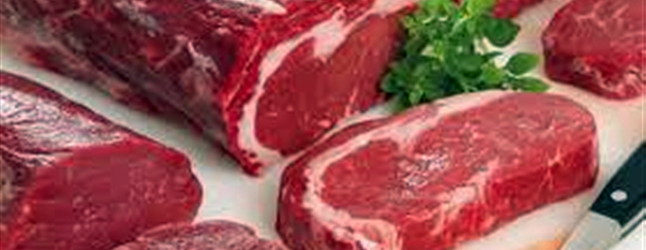
By David F. Rooney
A list of 45 beef products from XL Foods, ranging from rib eye steaks to roasts, are being recalled from Coopers Foods, says the Canadian Food Inspection Agency.
The three-page list of products was put together on October 1. If you have purchased any beef products from Coopers since mid-September please click here to compare them with the officially recalled products.
“The CFIA is warning the public, distributors and food service establishments not to consume, sell, or serve the beef products described in the list because the products may be contaminated with E. coli O157:H7,” the agency said in a statement on its website.
Ben Harrack, manager of the Coopers Foods supermarket in Revelstoke, said he could not answer any questions and referred The Current to a corporate media spokesman in the Lower Mainland.
Here is their response to questions from The Current:
“We’re writing to advise you that earlier this morning, the CFIA made the decision to expand the recall of ground beef produced by XL Foods’ meat processing plant in Brooks Alberta to include other beef products produced by that company. Though we do not buy ground beef from XL Foods and have not for quite some time, our third party beef supplier does procure certain beef products from XL Foods that are now affected by the CFIA’s expanded recall.
“We are very proud of the facility we work with and the processes they have in place to provide us with a very high standard of food safety which includes extra steps that make the risk of this kind of contamination extremely low for us. However, as a precautionary measure, we are voluntarily initiating a recall of all potentially impacted products and we’ll be replacing removed product with unaffected supply over the next few days. Please see the detailed list here.
“If you’ve purchased any of these potentially affected items from any of our stores please feel free to return them to us for a full refund. For more information, visit the Canadian Food Inspection Agency’s website: http://www.inspection.gc.ca/food/consumer-centre/food-safety-investigations/xl-foods/questions-and-answers/eng/1348090287501/1348090501848
“Customers can also visit http://www.owfg.com/product-recalls for an update on products in our stores – it’s important to note the best before dates in particular.”
The affected products are associated with the same XL Foods manufacturing dates of August 24, 27, 28, 29 and September 5, as ground beef products recalled last month.
“The trace out from XL to secondary and tertiary distributors, manufacturers and retailers could result in a large number of affected products over a wide range of codes and dates,” the agency said.
Agriculture Minister Gerry Ritz said the XL plant at Brooks, Alberta, will not be allowed to reopen until the agency has confirmed that it is safe.
“I also went to XL Foods Inc. yesterday to personally ensure that everyone — from the executive in Ottawa to the in-depth review team in the facility — understand that the health and safety of Canadians is our first priority,” he said.
“The facility will not be allowed to reopen until the president of the Canadian Food Inspection Agency has confirmed, in writing to me, that it is safe. Canadians can be assured that they are and will continue to be our first priority.”
Meanwhile, XL Foods Inc. says it is taking full responsibility and pledged to regain the trust of consumers as a massive recall of meat intensified today.
The company issued a statement Thursday after Ritz was again grilled in the House of Commons by opposition MPs who accused him of withholding information from consumers.
XL Foods said it is “working diligently with the Canadian Food Inspection Agency … to implement changes to our food safety system to exceed existing high standards and regain the trust of Canadian consumers,” and improvements will include “intensified and enhanced testing.”
“We will only reopen the Brooks facility when the CFIA are completely satisfied that the health of Canadians is not at risk,” the release said.
“XL Foods has targeted prevention, process verification and correction, response and product control as areas where food safety enhancements are required.”
Five people in Alberta took sick after eating steaks produced by XL Foods that were tainted with E. coli.



